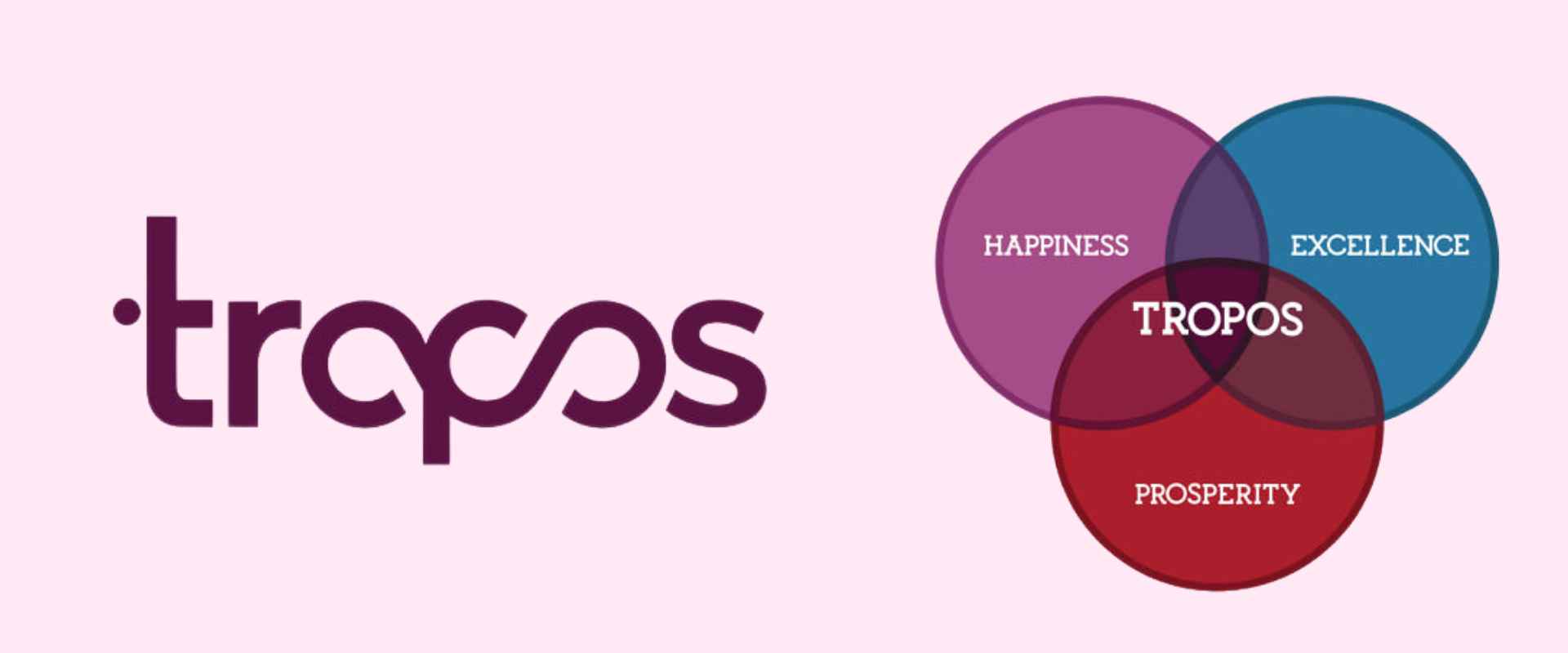In this article, we spotlight the TROPOS™ philosophy—a transformative cultural framework that I had the privilege to co-design together with Apostolos Hadjiyiannis, the visionary leader of Hadjiyiannis Group of Companies. Featured in the latest issue of Forbes, TROPOS™ has significantly contributed to the accolades of the Hadjiyiannis Group of Companies, named one of the “Best Workplaces™ Cyprus 2023.”
TROPOS™ is built around three interconnected pillars: excellence, prosperity, and happiness. These elements are not only pivotal for fostering an enriching work environment, but they also drive customer satisfaction and business growth.
Excellence encapsulates the commitment to consistently delivering high-quality products or services, continuous learning and growth and promoting trust, and confidence among clients. Prosperity ensures both the business and its employees flourish, encompassing not only financial growth but also the provision of resources that promote employee well-being. Happiness, closely tied to employee and customer experience, creates an environment where motivated, committed employees take pride in their work and where customer satisfaction hits the mark.
The intricate interplay of these pillars forms a cycle of positive reinforcement. Excellence attracts clients and cultivates a positive reputation, contributing to prosperity. In turn, prosperity allows for investment in resources that foster employee happiness, which enhances motivation and productivity, thereby feeding back into excellence.
To understand the impact of these interconnected pillars, let’s explore scenarios from professional services contexts such as law and accounting, where misalignment with these values can create challenges:
- Robert, a meticulous tax consultant, faces constant pressure to speed up his clients’ tax planning, potentially overlooking crucial details. This is an example of an excellence deficiency, leading to subpar service and client dissatisfaction.
- Jane, a promising attorney, manages multiple high-profile cases. However, her firm fails to provide necessary resources like research aids or paralegal support. This shows a prosperity shortfall, creating a mismatch between the firm’s ambitions and its resources, resulting in employee burnout and client dissatisfaction.
- Paul, a seasoned auditor, effectively completes his assignments but feels burdened by the monotony and lack of recognition. This represents a happiness deficit, where job satisfaction and motivation are reduced due to limited acknowledgment and task variety.
With the potential challenges in view, how can we leverage the TROPOS™ philosophy in our professional services environments? Here are five practical tips:
- Promote Continuous Learning: Uphold a standard of excellence by emphasising ongoing professional development.
- Provide Adequate Resources: Align with prosperity by ensuring sufficient resources, including manpower, tools, and support.
- Recognise Employee Contributions: Enhance happiness and motivation by regularly acknowledging and rewarding team members’ efforts.
- Encourage Variety in Tasks: Counteract job monotony and stimulate intellectual curiosity by fostering a rotation of roles or diversification of projects.
- Maintain Regular Feedback Mechanisms: Continually assess your team’s sentiments to uphold a balance between excellence, prosperity, and happiness.
I invite you to reflect on how we can implement a TROPOS™-inspired culture in our firms. Share your thoughts and experiences in the comments below.
Onwards and upwards!
#Hadjiyiannis #BestWorkplaces #TROPOS #ProfessionalServices #Culture #Excellence #Prosperity #Happiness #MarvellousSuccessSecrets #Forbes
P.S. TROPOS™ is a registered trademark.
P.S. TROPOS™ featured in Forbes (Greek).


